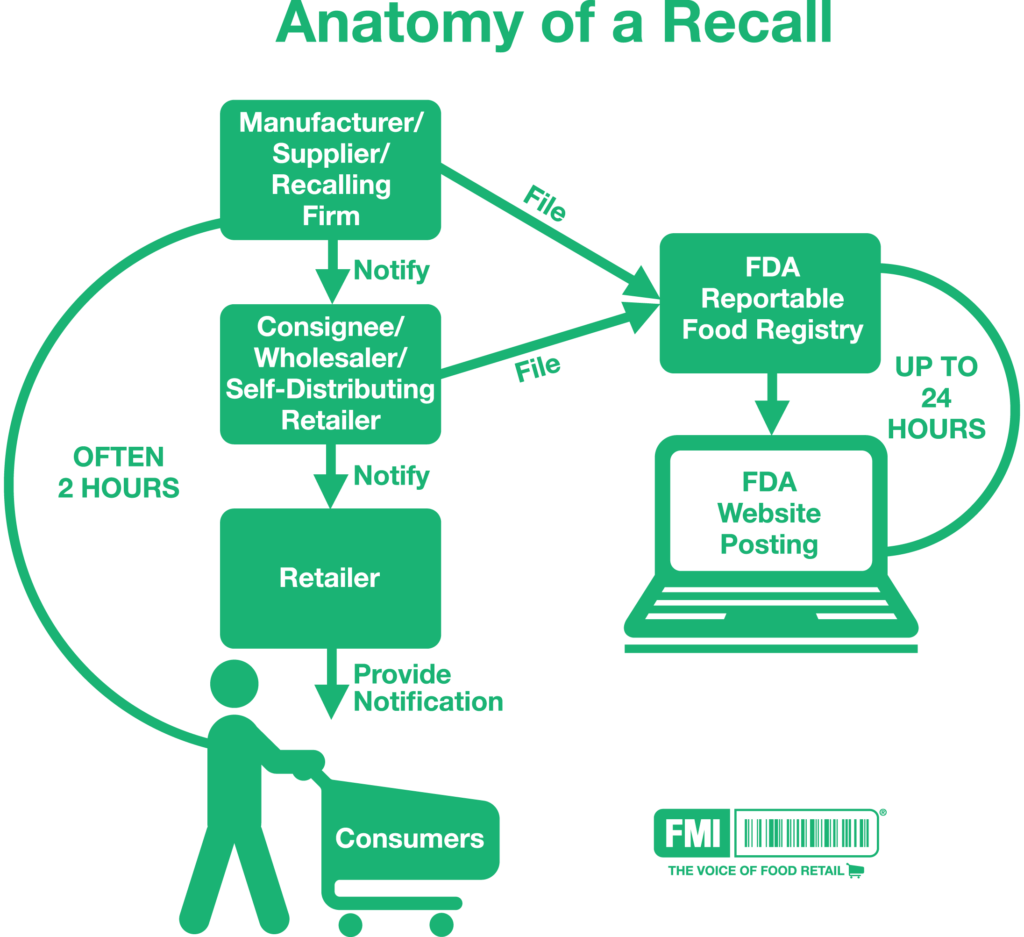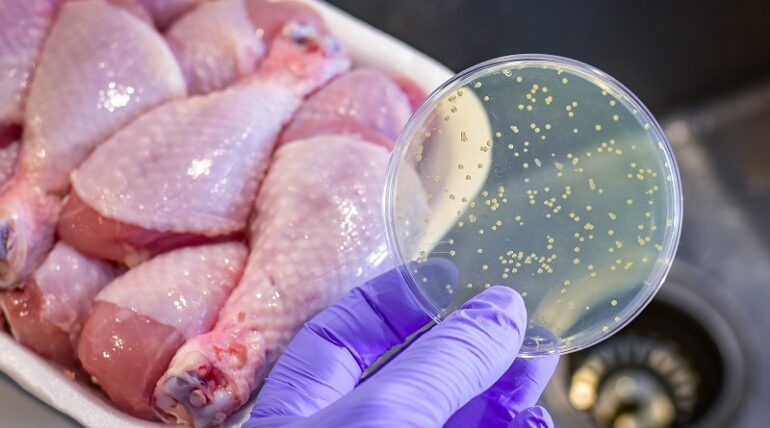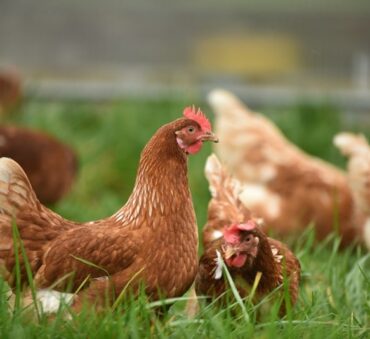Food recall happens when a particular sale of food is either voluntarily removed by the distributor or manufacturer, or at the request of regulatory bodies, due to safety concerns. Thus, it affects the consumer, relevant businesses, and the Government.
Food Recall Plan: The Best Way To Handle Recalled Food Items
Food recalls are often linked to health risk factors, damage to the brand’s reputation, or even legal actions with dire financial consequences. In other words, it often requires an effective food recall plan that complies with the government’s legalities and regulations. This article will discuss the best way to handle recalled food items.
Legalities and Regulations of Food Recalls in the US
In the United States, regulatory authorities ensure consumer safety and public health, and all regulations and legal regulations are met.
The FDA is the primary regulating body. It plays a vital role in food safety in the US by establishing regulations and standards enforced to maintain the safety and quality of foods.
The USDA is responsible for developing and executing policies and for Food Safety and Inspection Services (FSIS), supporting and regulating food safety in the US.
How to prepare an effective food recall plan
A food recall can damage a brand’s reputation, whether it be a manufacturing or retail entity. In addition, the financial burdens affect the business and the consumers alike. So, how can you minimize the food recall damage and prepare an efficient plan?
1. Food recall plan for manufacturers
Food manufacturers need to have steps and procedures in place for a food product recall, to assure the health and safety of the consumer, as well as keep compliant and avoid legal consequences. Here are the main elements that manufacturers need to highlight on the plan:
- Identify and assess the issue: a manufacturer should proactively identify an issue with a food product. Inspect the case and analyze whether it is due to mislabeling ingredients or a contaminated food item. A thorough investigation will identify the root cause of the issue, find out why this happened, address the issue with practical solutions, and how to avoid future incidents.
- Initiate the recall process: to recall food products, a manufacturer should have a recall team that follows protocols to ensure the health and safety of the consumer and regulations set out by regulatory bodies. It also needs to have the necessary technology, logistics and management systems.
- Notify and communicate with relevant parties: communicate with the regulatory bodies, stakeholders, and consumers affected by the recall. It is crucial to have open and honest communication with all parties involved. The communication strategy should be transparent and share information about potential health risks.
- Retrieve and dispose of products: As a manufacturer, what do you do with recalled food products? The product should be retrieved from the retailer, disposed of, and destroyed. Experts in food recall management, such as Shapiro, are equipped to handle recalled food waste.
- Improve quality control: A manufacturer can avoid possible future food recalls by improving quality control protocols. A proactive approach to enhancing the quality in manufacturing can include supplier verifications and updating food safety management systems.
2. Food recall plan for retail businesses
A retail business should have an appropriate food recall plan. The food recall procedure allows for clear instructions on handling the recall process, including return policies for the customer and refund instructions. Some of its main aspects include:
- Identify affected products and monitor inventory: a retail business should regularly look out for recall notices on products stocked in the store and cross-reference these with the inventory to identify if there are any affected products to recall. A retailer should monitor inventory to ensure all recalled stock is disposed of accordingly and not mistakenly reintroduced into the sales flow.
- Remove and separate recalled products: retailers must remove stocked products from the shelves to prevent consumers from purchasing it. Not to mention removing it from the inventory after the monitoring phase.
- Communicate and assist in the recall process: a retailer should include clear and concise recall notices in-store and online to notify the consumer about the affected product and all relevant information about the product recall. This includes documenting all sales, refunds and retrieving manufactured products. the recall process will allow for seamless corrective actions and investigations to occur.
- Facilitate refunds and maintain customer support: Return instructions should be in place for customers and staff to be aware of the process for returning and refunding the recalled product. Retailers should have sufficient customer support to address all questions, concerns, or complaints about the food recall process.
- Improve processes and train staff: a retailer should include a post-recall evaluation to measure the efforts of handling the recall efforts and allow to identify improved protocols and procedures to implement with future food recall incidents. To effectively manage recall procedures, a retailer should ensure all staff have received training and are fully aware of all policies in place relating to food recalls.
- Maintain product safety standards: The retailer should ensure that all health and safety procedures are followed and that all products comply with policies and regulations.

Government agencies protocol for food recalls
1. Detection and Investigation
- Monitoring Systems: Government agencies maintain surveillance systems to detect potential food safety issues, including reports from consumers, health professionals, and industry stakeholders.
- Risk Assessment: During this stage, governing bodies must identify the problem and assess its severity and hazards. This assessment includes looking at the expected impact this food product will have on public safety and the effect this will have on the supply chain.
- Investigation: Regulating bodies must investigate and take measures to better identify the problem’s source and take appropriate actions such as corrective measures and issuing warnings.
2. Communication and Recall Management
- Recall Initiation: The governing bodies, such as the FDA, must notify the public about the recall and communicate detailed information and instructions about the affected product.
- Public Notification: Accurate and timely communications on the food recall plan should be shared throughout the process, including disseminating information through press releases, websites and sharing the news on social media channels.
- Collaboration with Stakeholders: To collaborate with all stakeholders, governing bodies must share industry communications continuously, including issuing notifications, alerts, or guidance documents to ensure compliance and adherence to regulatory requirements.
3. Monitoring and Verification
- Compliance Monitoring: Government agencies need to monitor the cooperativeness of the stakeholders to follow the correct steps, including the notifications sent out and the strategies in place for food products to be recalled and removed from the market.
- Verification Testing: Verification testing should be conducted to ensure the effectiveness of corrective actions, allowing the regulatory bodies to appropriately address the food recall issue.
- Enforcement Actions: This step includes issuing warning letters, fines, and penalties for manufacturers and retail businesses that fail to comply with all necessary recall requirements to hold parties accountable for failing to take appropriate actions and affecting public health regarding food safety regulations.
4. Post-Recall Evaluation and Prevention
- Evaluation and Analysis: To continuously improve food safety, post-recall evaluations are essential to ensure the effectiveness of the overall outcome of food recalls, allowing governing bodies to identify gaps and improvements to prevent this from happening again.
- Regulatory Updates: Through shared regulatory updates, all touch points can follow guidance on best practices, new proposed regulations and standards, improved testing protocols, and evaluation as preventative measures.
- Prevention Measures: The governing bodies should ensure that preventative measures are in place to ensure the safety of the food supply, such as risk assessment, surveillance, testing, and sampling.
Delegate the food recall plan to the experts
Just by reading through this post, you can definitely see that food recalls aren’t easy to plan nor to conduct successfully. This is why you should partner up with a reputable food waste management service that provide innovative food waste recycling solutions can simplify the food recall process. Contact Shapiro today to manage food recall plans effectively.
Baily Ramsey, an accomplished marketing specialist, brings a unique blend of anthropological insight and marketing finesse to the digital landscape. Specializing in educational content creation, she creates content for various industries, with a particular interest in environmental initiatives.



